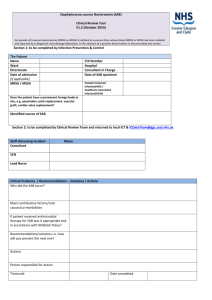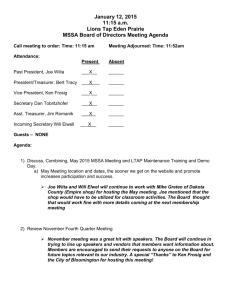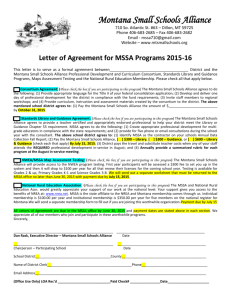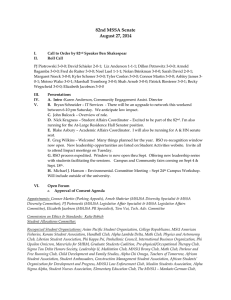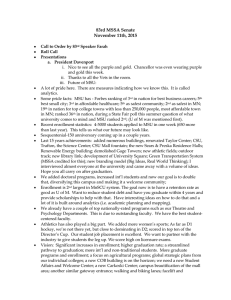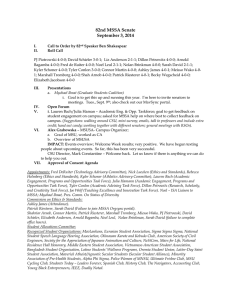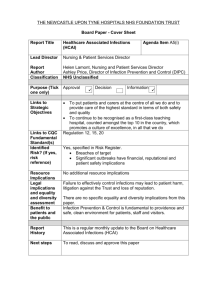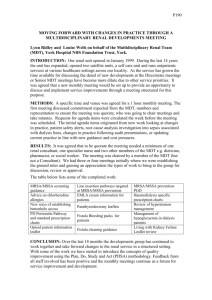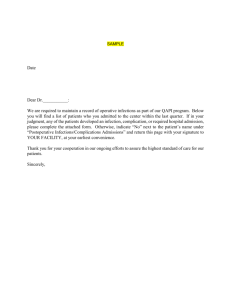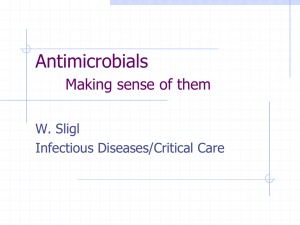Methicillin Sensitive Staphylococcus aureus (MSSA)
advertisement
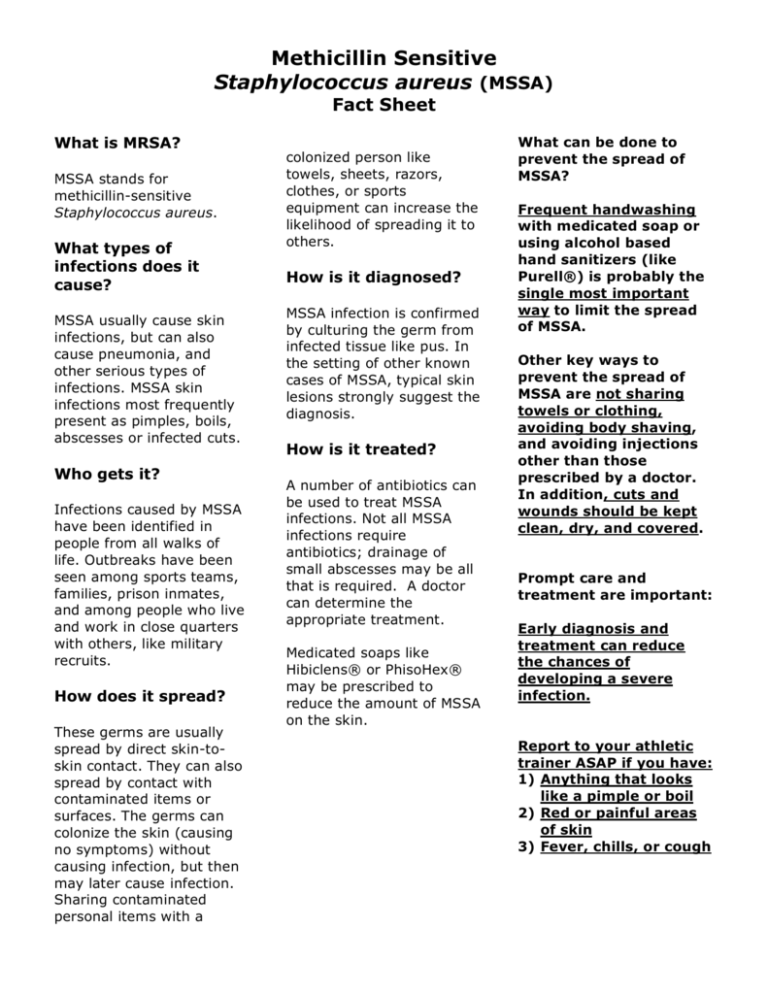
Methicillin Sensitive Staphylococcus aureus (MSSA) Fact Sheet What is MRSA? MSSA stands for methicillin-sensitive Staphylococcus aureus. What types of infections does it cause? MSSA usually cause skin infections, but can also cause pneumonia, and other serious types of infections. MSSA skin infections most frequently present as pimples, boils, abscesses or infected cuts. Who gets it? Infections caused by MSSA have been identified in people from all walks of life. Outbreaks have been seen among sports teams, families, prison inmates, and among people who live and work in close quarters with others, like military recruits. How does it spread? These germs are usually spread by direct skin-toskin contact. They can also spread by contact with contaminated items or surfaces. The germs can colonize the skin (causing no symptoms) without causing infection, but then may later cause infection. Sharing contaminated personal items with a colonized person like towels, sheets, razors, clothes, or sports equipment can increase the likelihood of spreading it to others. How is it diagnosed? MSSA infection is confirmed by culturing the germ from infected tissue like pus. In the setting of other known cases of MSSA, typical skin lesions strongly suggest the diagnosis. How is it treated? A number of antibiotics can be used to treat MSSA infections. Not all MSSA infections require antibiotics; drainage of small abscesses may be all that is required. A doctor can determine the appropriate treatment. Medicated soaps like Hibiclens® or PhisoHex® may be prescribed to reduce the amount of MSSA on the skin. What can be done to prevent the spread of MSSA? Frequent handwashing with medicated soap or using alcohol based hand sanitizers (like Purell®) is probably the single most important way to limit the spread of MSSA. Other key ways to prevent the spread of MSSA are not sharing towels or clothing, avoiding body shaving, and avoiding injections other than those prescribed by a doctor. In addition, cuts and wounds should be kept clean, dry, and covered. Prompt care and treatment are important: Early diagnosis and treatment can reduce the chances of developing a severe infection. Report to your athletic trainer ASAP if you have: 1) Anything that looks like a pimple or boil 2) Red or painful areas of skin 3) Fever, chills, or cough
